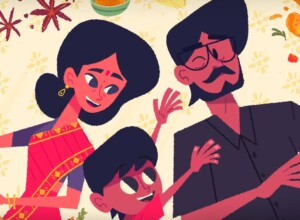How do you pick the best games of the past decade?
First, we whittled down all of the biggest releases to a list of over 50 monumental video games from the last 10 years. (And yes, a decade runs 2010-2019, not 2011-2020, before the shrieking loons start complaining that “the decade’s not over yet” on Twitter.)
Then we had a bit of a chat among ourselves, to try and shake out the top game for each year. In some cases, it was incredibly easy. In other years, it was excruciatingly difficult, and one of our editorial team had to get a bit unilateral to ensure we ended up with just one game. (2013, 2016, 2017, and 2018 could easily have had joint winners, for instance.)
Then, because we’re kind, we included the games that weren’t selected as honourable mentions, because some truly amazing games were pipped to the post.
Did we learn anything about ourselves in the process? Absolutely. When it comes down to it, our predilection for indie games shows through. And when games on the list are AAA releases or from massive publishers? They tend to be something a bit different to the recurring mega-franchises.
And finally, are we going to treat this like Crufts, and pick a “best in show” from the winner of each year? Absolutely not. This was a difficult enough exercise to get it down to 10; there’s no way we could narrow it down any further than that.
2010 – Limbo

There had, of course, been hit indie games before Limbo. Spelunky, Braid, Time Gentlemen, Please – even the mighty Minecraft saw its first “early access” release in 2009 – but Limbo, from Danish developer Playdead, feels like the catalyst at the start of the indie boom. Limbo marries a tight premise with masterful presentation, and in spite of its 2D platform-puzzle roots, the mashup of shadow puppetry and film noir is arguably more cinematic than most grandiose 3D games.
Honourable mentions:
- Red Dead Redemption is basically Grand Theft Auto with sad cowboys? Yes, please
- BioShock 2 may lack the dynamite narrative twists, but it’s also secretly the secret best BioShock
- Fallout: New Vegas was so beloved, more so than Fallout 3, that Bethesda would never allow Obsidian to make another Fallout game (see: The Outer Worlds, 2019)
2011 – Portal 2

Remember when Valve used to make video games, rather than a monopoly storefront that squishes indie dreams and allows gross content without any supervision? Yeah, that was awesome. Those were the days. And the pinnacle of those days was Portal 2. Smart puzzle-solving and fun co-operative play are used to great effect, and would birth countless imitations since. But above all, it’s the combination of cleverness and humour that elevates Portal 2. (Even if it did also give us a bunch of tedious catchphrases.)
Honourable mentions:
- The Elder Scrolls V: Skyrim is beautiful, grandiose, and occasionally a little clunky, but it remains a paragon of roleplaying
- Dark Souls, we guess? The “git gud” mantra consistently brings out the worst in everyone, but people seem to love the genre it birthed
- We’re including Uncharted 3 – primarily for that incredible desert sequence – but 2011 wasn’t a great year, truth be told
2012 – Journey

Journey is a moment in time, a perfect little slice of form and feeling. Not just the game itself and its place in the annals of video game history, but each individual player’s first experience of Journey exists as a precise distillation of wonder. The first time you stride through Journey’s beautiful desert, and get lost, and find solace, hand in hand with a stranger? That stays with you. Journey stays with you, preserved forever.
Honourable mentions:
- The Walking Dead single-handedly revitalise the point-and-click genre; Telltale may be gone, but we won’t forget
- Mass Effect 3 was the end of a masterful trilogy, but was also an ignominious cave-in to pressure from toxic fandom
- Hotline Miami, the hyper-violent indie game, was one of the first to ask: “Do you like hurting other people?“
2013 – Gone Home

When Fulbright released Gone Home in 2013, the indie developer can’t have conceived the impact their game would have. There were obviously non-violent games before Gone Home, but it was the first commercially successful game that made exploration and embodiment of the character its key mechanics, rather than shooting, puzzling, or some combination of the two.
Gone Home’s non-violent gameplay also upset the proto-gamergate mouthbreathers. It birthed the supposedly derogative genre name, the “walking simulator” – which idiot thought that was better than “first-person snooper”? – that games in the genre have since owned as a badge of honour. Someone also described it as “basically a lesbian scavenger hunt” in a negative review, which just makes it sound more amazing?
Honourable mentions:
- The Last of Us is one of the finest pieces of video game storytelling, raw and emotional
- Grand Theft Auto V, somehow, is still topping bestseller lists, six years on (in spite of that submarine)
- BioShock Infinite is the “Christopher Nolan film” of video games, deliberately baffling and better for it
- The Tomb Raider reboot, written by Rhianna Pratchett, finally gave gaming’s greatest heroine the personality to match her attitude
2014 – Mario Kart 8
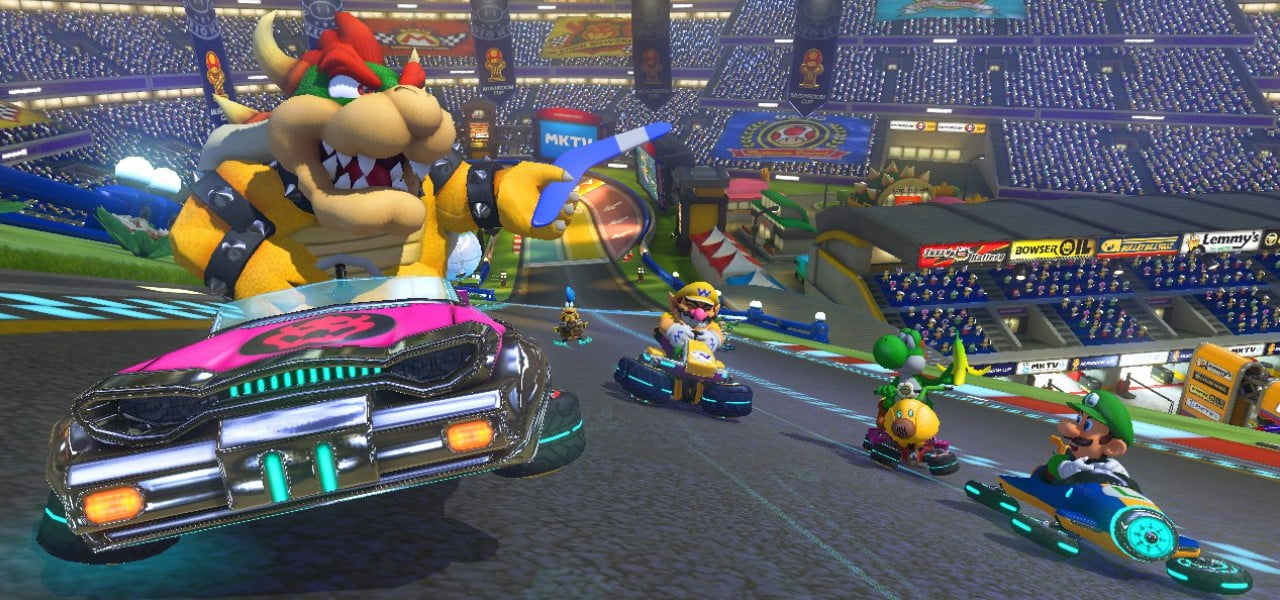
Like Grand Theft Auto V the year before, people are still playing – and more importantly, buying – Mario Kart 8 in droves, years later. In an industry where games typically have a lifespan of a year or two before they are replaced by an inevitable sequel, the longevity of Mario Kart 8 is incredible. And the reason it has lived so long, and survived the death of the Wii U and thrived on the Nintendo Switch, is because it is truly the game for everyone.
Honourable mentions:
- Monument Valley is one of those beautiful exercises in simplicity that feels like so much more for its restraint
- Alien Isolation was pretty scary, and rather clever to boot
- Erm… Destiny? Bungie’s first solo effort set the trend for loot-heavy service games, which… kinda sucks? 2014 was actually a bit of a shit year, wasn’t it?
2015 – The Witcher 3: The Wild Hunt

Few RPGs have made quite the impact of The Witcher 3 in recent years. Yes, it’s a beautiful game with a bunch of technical tricks up its sleeve – including realtime hair and beard growth on protagonist Geralt – but it’s the story, and its massive expansions, that really caught the imagination. The biggest compliment, though? The legacy. Not only has the success of The Witcher 3 allowed developer/publisher CD Projekt Red to develop the enormous Cyberpunk: 2077, and for Netflix to commission a Witcher series featuring Henry Cavill, but the appetite to replay the game has seen it ported to Nintendo Switch. Which is remarkable in itself.
Honourable mentions:
- Everybody’s Gone to the Rapture is more art installation than game at times, but that environment and music combine in an almost spiritual experience
- Rocket League is another game that’s on this list by dint of its longevity; it’s just a really pleasant, popular, competitive game
- Splatoon – speaking of pleasant, popular, competitive games – is one of the bravest moves Nintendo has made in years
- Both Life is Strange and Until Dawn picked up the baton from Telltale Games, and raised the bar on narrative adventures
2016 – Firewatch
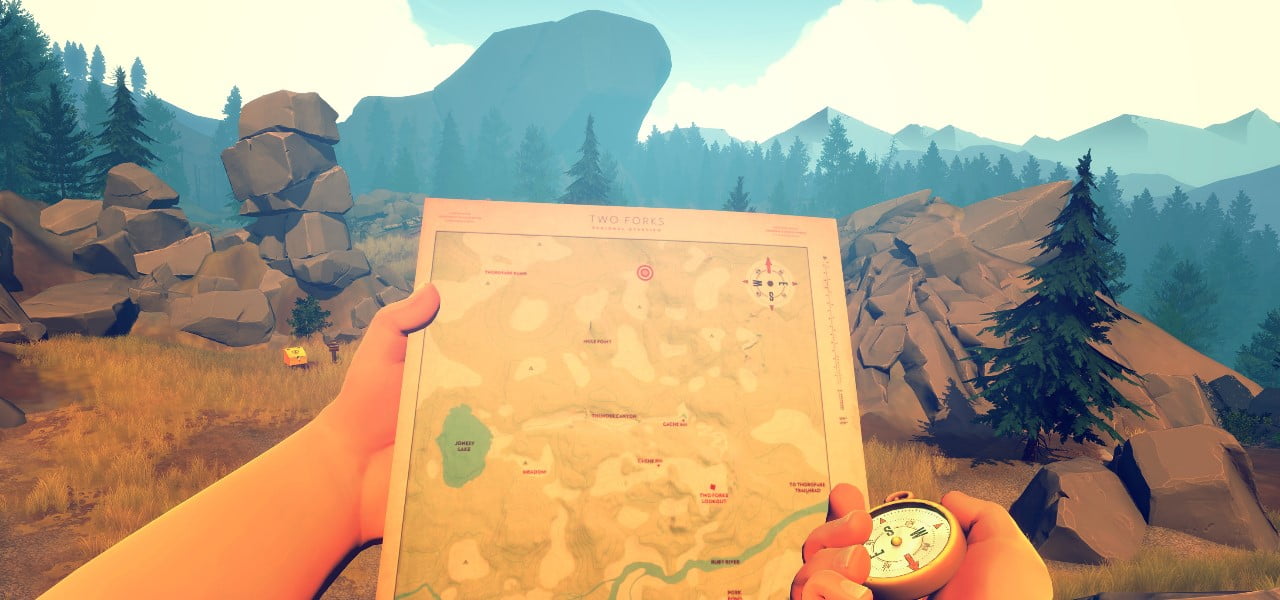
If Gone Home was the pilot for the genre, then Firewatch is the smash hit that everyone watched. It combines the first-person snooper mechanics but takes them out of the home and into the wilderness, spilling over the Shoshone National Park in Wyoming. It also mixes the disembodied voice bit from System Shock, Portal and BioShock, but asks the question, what if the person on the other end of the radio isn’t a howling homicidal shitbag? Firewatch then combines this radio buddy with a Telltale-like dialogue system for a stunning combination of exploration, mystery, and the human experience.
Honourable mentions:
- Inside, Playdead’s follow-up to Limbo, is just as brilliant
- The Last Guardian – the long-awaited follow-up to Ico and Shadow of the Colossus – finally released, and it was as special as we all hoped
- The Witness is a game that can make you feel like a genius and a moron at the same time, which is quite an achievement
- Titanfall 2 is the best FPS that nobody played; it’s one of the best shooters ever made, in fact
- And Stardew Valley? And Final Fantasy XV? And Uncharted 4? And Pokemon Go? And Hyper Light Drifter? And No Man’s Sky? And Overwatch? Wow, 2016 was a hell of a year, wasn’t it?
2017 – The Legend of Zelda: Breath of the Wild
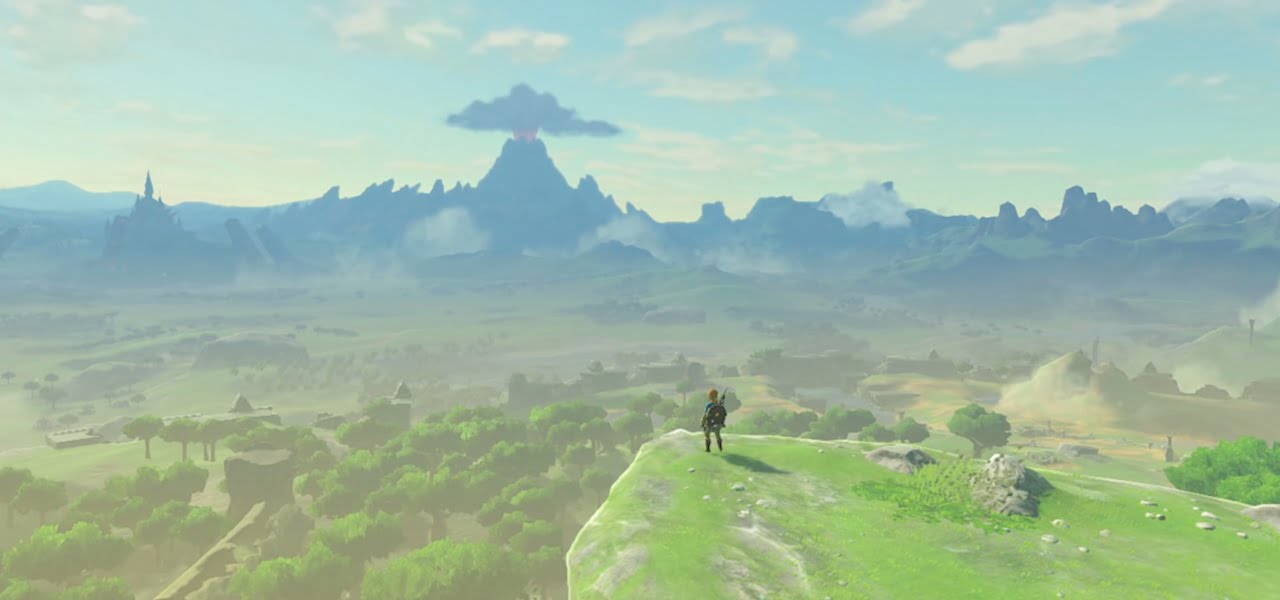
Were there any other video games released in 2017? The Legend of Zelda: Breath of the Wild is so good, you could be forgiven for forgetting them all. (there were some; see the honourable mentions below). Breath of the Wild even masked the fact there was no Mario game at the Nintendo Switch’s launch, and the fact people were still exploring Hyrule probably dampened Super Mario Odyssey’s release. It’s that good.
Not only is it a great Zelda game, and a technical marvel that such a big, beautiful game runs on such a (comparatively) weedy console, but Breath of the Wild is also proof that open-world games don’t need to be overwhelming. Every quest or objective in Breath of the Wild is bitesize, doesn’t take hours to complete, and doesn’t rely on prior knowledge; it’s easy to dip back in after months away and feel like you never left. You can even walk straight to Hyrule Castle and defeat Ganon right from the off, if you’re good enough. No other open-world game is so forgiving and so accessible, while still feeling so grand and spectacular.
Honourable mentions:
- Hellblade: Senua’s Sacrifice is a marvel of performance capture, and a rare and sensitive portrayal of mental illness to boot
- Night in the Woods, like Hellblade, is a powerful portrayal of life’s difficulties, but it’s dressed up in a sweet, fun package
- PUBG and Fortnite Battle Royale stormed the esports scene, bringing battle royale to the global scene in a massive way
- Horizon Zero Dawn is great! But it suffers from being “the other open-world epic” in the year of Breath of the Wild
- And Nier: Automata, too! Another game that got a bit overlooked because of Breath of the Wild
2018 – Return of the Obra Dinn
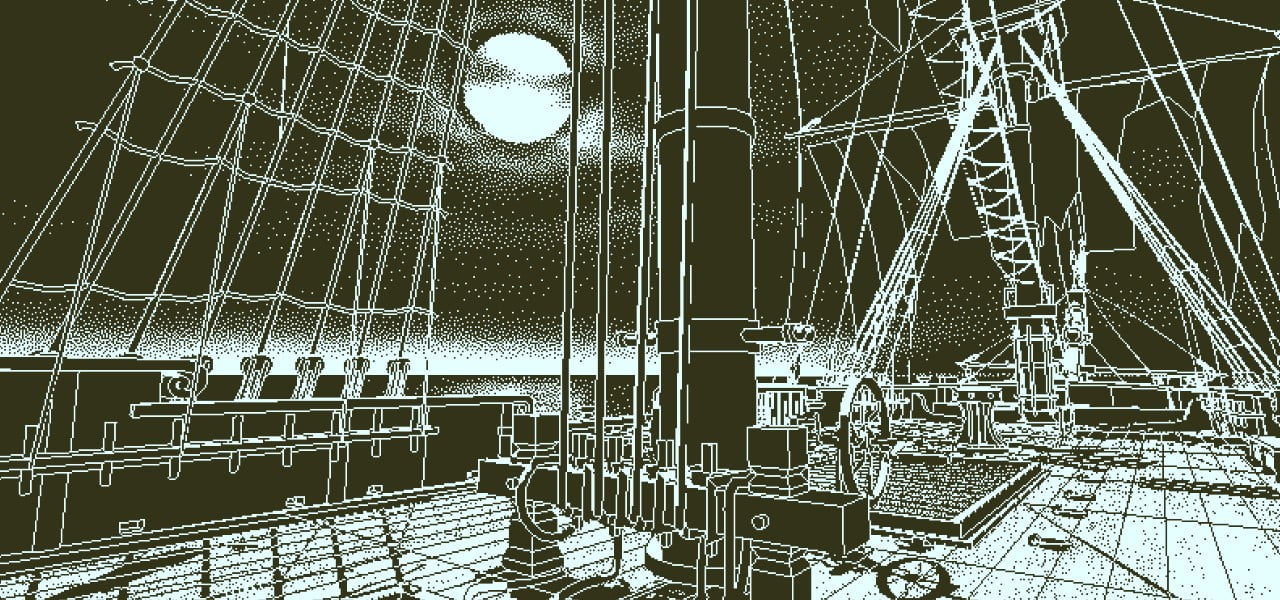
When you look at some of the other games in the “honourable mentions” for 2018, the selection of Return of the Obra Dinn is even more remarkable. An extract of our review of Lukas Pope’s insurance investigation-em-up should offer some insight into why we rate it so highly.
The game is, simply put, one of the best ever made. It’s intricate, macabre, involving and essential. It’s aesthetically phenomenal and intellectually satisfying. Like the very best games, Return of the Obra Dinn is an experience that could only ever exist as a game. It’s’ a masterwork of narrative Sudoku and a recommended purchase on any platform.
Honourable mentions:
- Marvel’s Spider-Man shows just how nice a superhero game can feel, with brilliant movement and the opportunity to be a truly good guy
- God of War is a remarkable reimagining of a pretty lacklustre series, that follows the Naughty Dog “sad dad” template to remarkable effect
- Celeste is both a tight, challenging platformer and a moving story of determination and learning to love yourself
- Red Dead Redemption 2 offers more spectacular sad cowboys, but is so big and dense that many have bounced off before completing it
- Gris is another one of those remarkable indie experiences that feel like once in a lifetime, but they come around with amazing regularity
2019 – Control
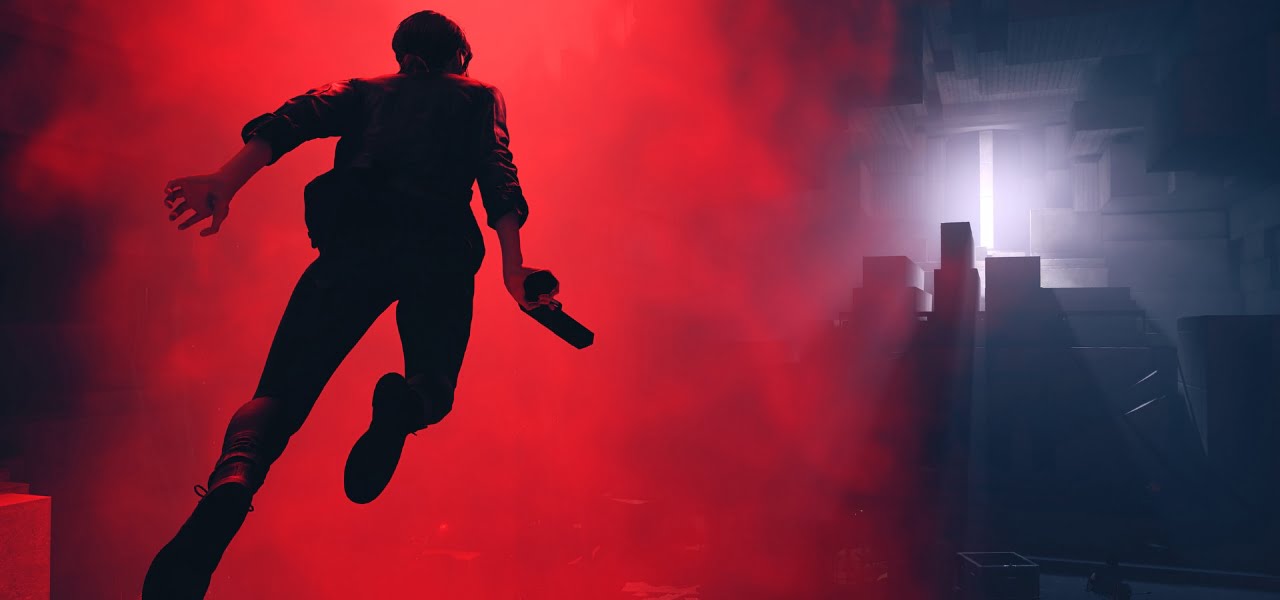
In the final year of the decade, it’s great to see a massive game with a AAA budget take loads of risks, turn out really flipping weird, and still receive critical and commercial acclaim. Yes, that’s right. We are, of course, talking about Death Stranding Remedy’s Control.
You could make the case for either, to be fair. But where Death Stranding is a brilliant experimentation in what makes a game, its dreadful story and umpteen hours of tedious cutscenes can make it painful. Which is a shame, because the actual game – schlepping across the wilderness like a post-apocalyptic Postman Pat, the stuff people thought would be a slog – is a great idea, and well-executed. Control, on the other hand, manages to be just as weird and experimental as Kojima’s game, but is a more accessible experience and a more cohesive whole. That’s why Control wins out.
Honourable mentions:
- Ape Out is a powerhouse of performance and style, with the cleverest procedural audio we’ve ever heard
- Telling Lies shows, in a post-Bandersnatch world, that video games are still better at this sort of thing (and proves Sam Barlow is the best at it)
- The Outer Worlds/Outer Wilds caused us all sorts of bother. Which one are we talking about? It doesn’t matter – they’re both great!
And that’s it. That’s the top 10. And we’re still not going to pick a single favourite.




